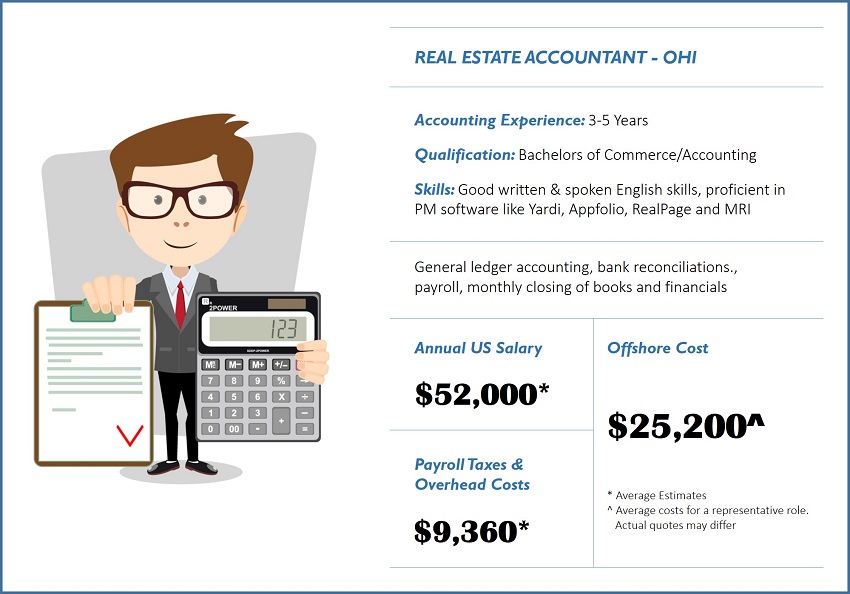How to Choose the Right Real Estate Accountants to Manage Complex Transactions
Vital Methods for Efficient Construction Accountancy in Construction & Real Estate Projects
In the vibrant landscape of building and genuine estate, efficient accountancy techniques are vital to job success. Understanding the fundamental concepts of building accountancy, combined with the implementation of work setting you back approaches, can substantially improve financial accuracy.
Recognizing Construction Bookkeeping Essentials
Building bookkeeping is a specialized field that requires an extensive understanding of economic monitoring concepts customized to the special obstacles of the building sector. Unlike standard audit, which concentrates on a consistent collection of economic tasks, building and construction accounting have to make up the vibrant nature of projects, rising and fall costs, and differing timelines.
Crucial element of building audit include work setting you back, contract monitoring, and financial reporting. Task costing allows companies to track expenditures connected with specific jobs, ensuring that budget plans are abided by and productivity is maximized. Precise contract administration is critical as it involves the complex handling of change orders, development invoicing, and retention, every one of which can dramatically influence capital and project end results.
In addition, economic coverage in building and construction accountancy requires using specific metrics, such as Operate In Progress (WIP) records and percentage-of-completion audit. These devices supply stakeholders with understandings right into task efficiency and monetary wellness. By understanding these fundamental elements, building and construction specialists can improve monetary oversight, enhance decision-making, and inevitably drive task success, ensuring that both long-term goals and short-term purposes are satisfied effectively.
Applying Work Costing Approaches
Reliable task setting you back techniques are important for building companies to maintain financial control and enhance success. By precisely tracking prices linked with each project, companies can recognize areas of overspending, enhance budget plan management, and maximize resource allowance. Applying a methodical technique to task costing entails several crucial methods.
First, develop a clear framework for classifying expenses. Direct expenses, such as materials and labor, need to be separated from indirect costs, like overhead and administrative expenses. This distinction enables even more specific monitoring and analysis.

Third, consistently testimonial and upgrade cost data to mirror real-time job conditions. This enables timely changes and notified decision-making, making certain that projects stay on track economically.
Utilizing Building And Construction Administration Software
In today's competitive landscape, leveraging building monitoring software has come to be a crucial device for boosting project performance and accuracy. These software solutions enhance different facets of construction audit, from budgeting to invoicing, allowing task supervisors to maintain accurate monetary oversight. By incorporating real-time data monitoring, teams can monitor costs and change budget plans proactively, making certain that projects remain economically sensible.

In addition, construction management software assists in enhanced interaction among stakeholders. With streamlined platforms, all employee, from project supervisors to subcontractors, can access up-to-date economic information, boosting and reducing inconsistencies cooperation. This openness not only help in decision-making but additionally cultivates count on amongst all celebrations entailed.
In addition, the automation of routine bookkeeping jobs lowers the possibility of human mistakes, which can lead to costly economic mismanagement. With attributes such as automated payment and expenditure tracking, construction monitoring software enables groups to concentrate on calculated planning and execution as opposed to administrative tasks.
Inevitably, embracing building monitoring software program represents a financial investment in operational performance, placing firms to react agilely to the dynamic needs of building and construction and property projects. Welcoming these tools can dramatically raise the requirements of building and construction audit techniques.
Ensuring Compliance With Regulations
Keeping compliance with policies is a basic aspect of successful building and construction bookkeeping that can not be neglected. Building jobs go through a myriad of neighborhood, state, and government laws, influencing every little thing from security requirements to economic coverage needs (Real Estate Accountants). It is necessary for building accounting professionals to stay notified concerning these laws to stay clear of monetary troubles and lawful penalties.
One secret approach is to implement robust monitoring systems that check look at these guys compliance in real-time. This may consist of normal audits of economic documents, agreements, and allows to make certain positioning with governing expectations. In addition, spending in recurring training for accounting personnel can foster a society of compliance, enabling the group to promptly adjust to regulative changes.
Partnership with lawful and conformity experts is also vital. Their understandings can aid recognize possible conformity pitfalls before they escalate right into significant issues. Developing clear inner plans that lay out conformity treatments ensures that all group participants comprehend their obligations. By prioritizing conformity in building bookkeeping methods, companies not only reduce dangers but also improve their credibility and operational effectiveness, inevitably adding to the project's general success.

Surveillance Financial Efficiency Frequently
Routinely keeping an eye on monetary efficiency is important for the success of construction projects, as it offers valuable understandings into budgeting, cash flow, and total job viability. Reliable monetary oversight enables task managers to recognize disparities between projected and real expenses, permitting prompt restorative activities.
Applying a structured method to see this here monetary tracking involves using vital performance signs (KPIs) such as earnings margins, expense variances, and earned value analysis. These metrics help with a clear understanding of job health and wellness, enabling teams to make enlightened decisions.
Constant evaluations of economic data additionally aid in projecting future costs and revenue, assisting to stay clear of money flow lacks that can endanger task timelines. Employing sophisticated accountancy software program can streamline the tracking process, providing real-time updates and improving information precision.
Furthermore, developing a routine for financial performance testimonials fosters accountability amongst team participants. Regular monetary meetings make sure that all stakeholders continue to be straightened on task purposes and economic objectives. By prioritizing consistent financial surveillance, construction companies can alleviate risks, maximize resource allotment, and inevitably improve project success.

Verdict
In conclusion, effective building accountancy is essential for the effective management of construction and realty tasks. By applying robust job costing methods, leveraging sophisticated building and construction check my reference monitoring software application, making sure governing conformity, and consistently monitoring financial efficiency, organizations can enhance financial oversight and minimize threats. These vital methods not just advertise adherence to spending plans but also help with enlightened decision-making, inevitably causing improved task end results and long-lasting monetary sustainability in the building industry.
By understanding these fundamental aspects, construction professionals can enhance financial oversight, boost decision-making, and inevitably drive task success, guaranteeing that both short-term objectives and long-term objectives are fulfilled successfully.
These software program options simplify different facets of construction accountancy, from budgeting to invoicing, allowing job supervisors to maintain specific monetary oversight. By prioritizing regular economic tracking, construction companies can reduce dangers, optimize resource allotment, and inevitably enhance project success.
In final thought, reliable construction accountancy is vital for the successful monitoring of construction and actual estate projects. By carrying out robust task setting you back methods, leveraging sophisticated construction management software program, making sure regulatory conformity, and frequently checking monetary efficiency, organizations can boost financial oversight and alleviate threats.